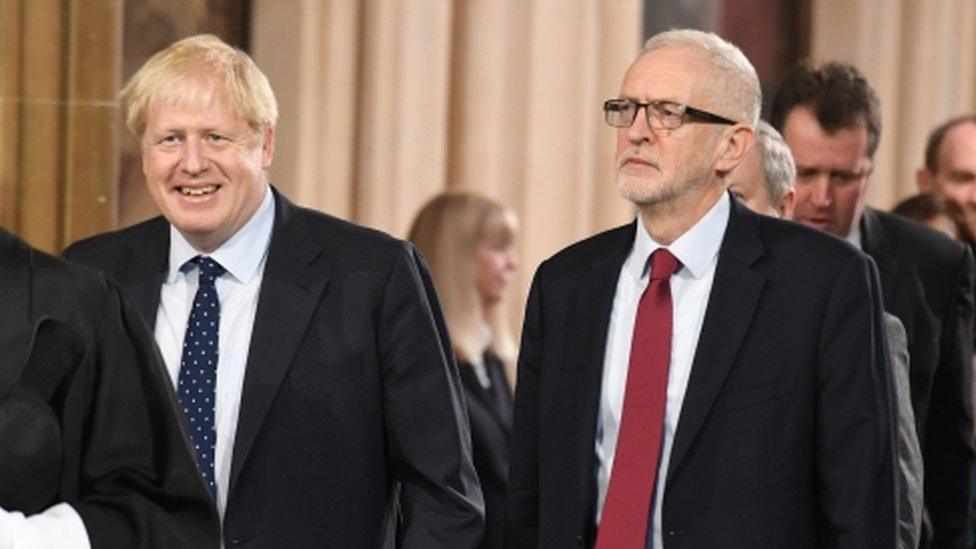General election 2019: Lib Dems and SNP in court over TV debate exclusion
- Published
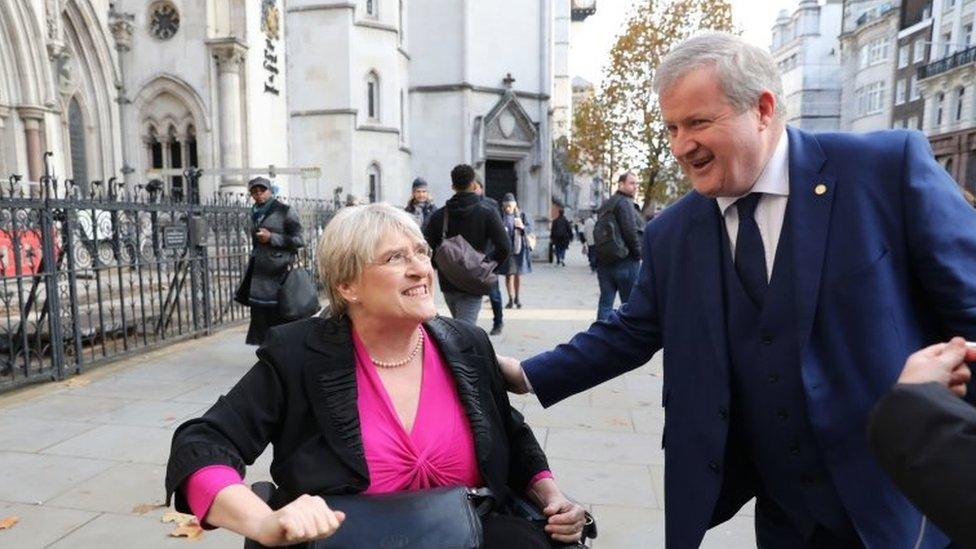
Lib Dem chairman Sal Brinton said their exclusion was "shameful" and SNP Westminster leader Ian Blackford said he hoped "sense prevails"
The views of voters who want to remain in the EU will be excluded if the Lib Dems and SNP are not part of ITV's election debate, a court has heard.
Lawyers for both parties told London's High Court that their views on Brexit would not be represented on the show.
The head-to-head between Conservative leader Boris Johnson and Labour leader Jeremy Corbyn is on Tuesday.
ITV lawyers told the court the debate would be cancelled if the ruling - due after 16:00 GMT - went against them.
An interview with Liberal Democrat leader Jo Swinson, due to follow the head-to-head, would also be pulled, they said.
Meanwhile, the Lib Dems have sent a legal letter to the BBC over its decision not to include Ms Swinson in a debate on 6 December.
In court, lawyers for the Liberal Democrats argued that Brexit was the "dominant" issue in the 12 December general election and that the "voice of Remain has been excluded" by ITV's decision not to include Ms Swinson.
Guy Vassall-Adams QC said the decision not to include the party was unlawful because it "breaches the duty of impartiality and the requirement to give due weight to a wide range of significant views".
"The dominant issue of this election campaign is Brexit, which is on any view a matter of major political controversy and current public policy," he told the court.
"In the first national TV debate of the campaign it is essential that a wide, balanced range of views on Brexit is represented."
He said this had "serious consequences for the fairness of the democratic process".
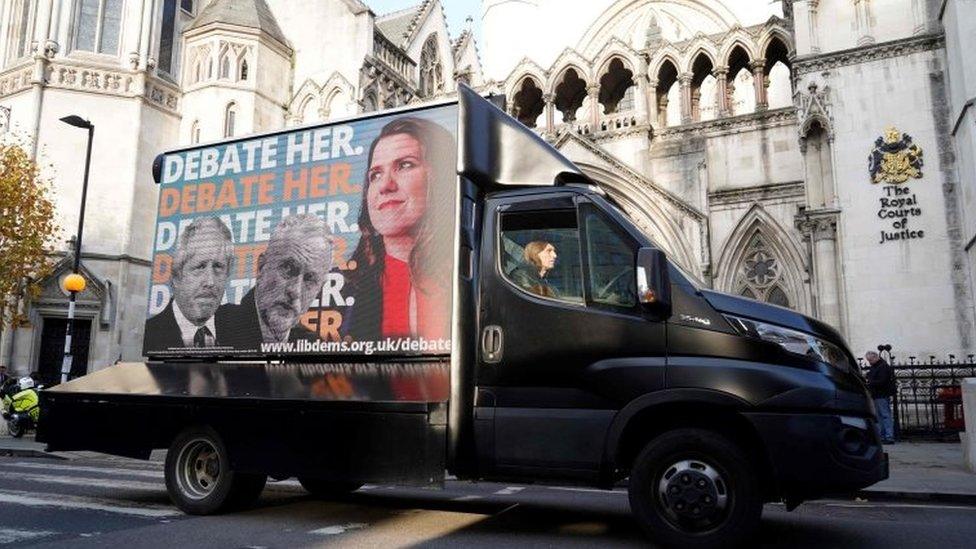
The Liberal Democrats want leader Jo Swinson to be included in the debate
Mr Vassall-Adams also argued there was evidence that TV debates "are very influential with voters", saying the programme "will attract millions of viewers".
Lawyers for the SNP - which lodged a separate legal challenge last week - said the party represented views, including on Brexit and Scottish independence, that would not be represented in a debate between Labour and the Conservatives.
Philip Coppel QC said: "Prior to 2010 it may have been the case that a debate between the Labour and the Conservative leaders would cover the full range of significant views in a general election.
"That was, arguably, a time when those parties encompassed the spectrum of mainstream political opinion.
"That is no longer the case. In the current, pluralistic political landscape it is simply not possible for a debate which only includes two parties to include 'all significant views'."
ITV lawyers argued there was no basis for alleging any unlawful conduct on the part of the broadcaster.

CONFUSED?: Our simple election guide, external
POLICY GUIDE: Who should I vote for?, external
REGISTER: What you need to do to vote

'Distinctive perspective'
When ITV announced its plans, the channel said it would hold a live interview-based programme alongside the leaders' head-to-head to allow other parties to comment, as well as another multi-party debate ahead of the 12 December poll.
The Liberal Democrats have also criticised the BBC's plan for a live head-to-head between Mr Johnson and Mr Corbyn on Friday, 6 December, because Ms Swinson is not taking part.
The party's lawyers have sent a letter to the BBC's director general Tony Hall, saying the exclusion of Ms Swinson is "clearly unlawful".
"It also means that viewers will be denied the opportunity to hear the fresh and distinct perspective that the Liberal Democrats bring on the dominant issue of this election, namely Brexit," the letter said.
The BBC declined to comment on the letter.
The broadcaster will host the live head-to-head debate between Mr Johnson and Mr Corbyn in Southampton on 6 December, plus a seven-way podium debate between senior figures from the UK's major political parties on 29 November, live from Cardiff.
And BBC Scotland will stage a televised debate between the SNP, Conservatives, Labour and Liberal Democrats on 10 December, although the Scottish Greens have criticised the decision not to include them.
- Published13 November 2019
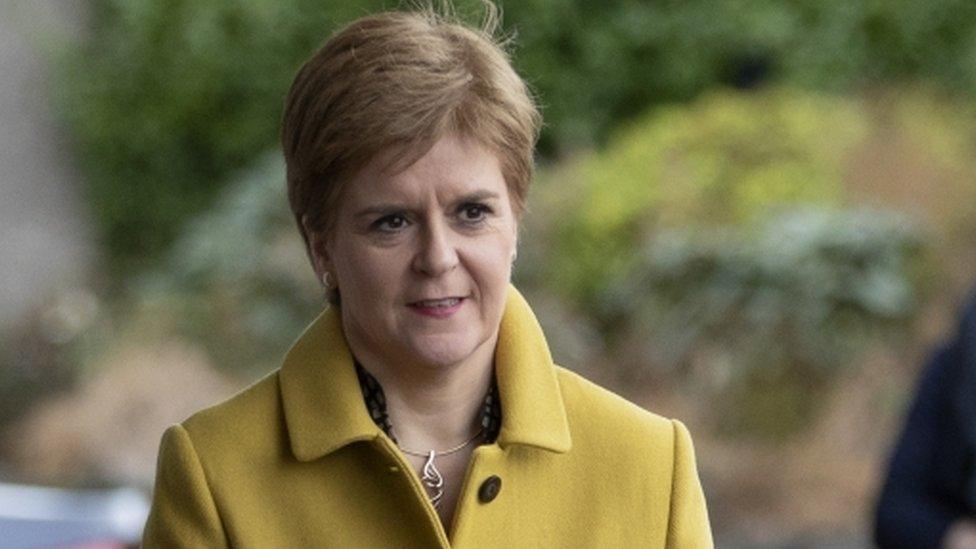
- Published11 November 2019
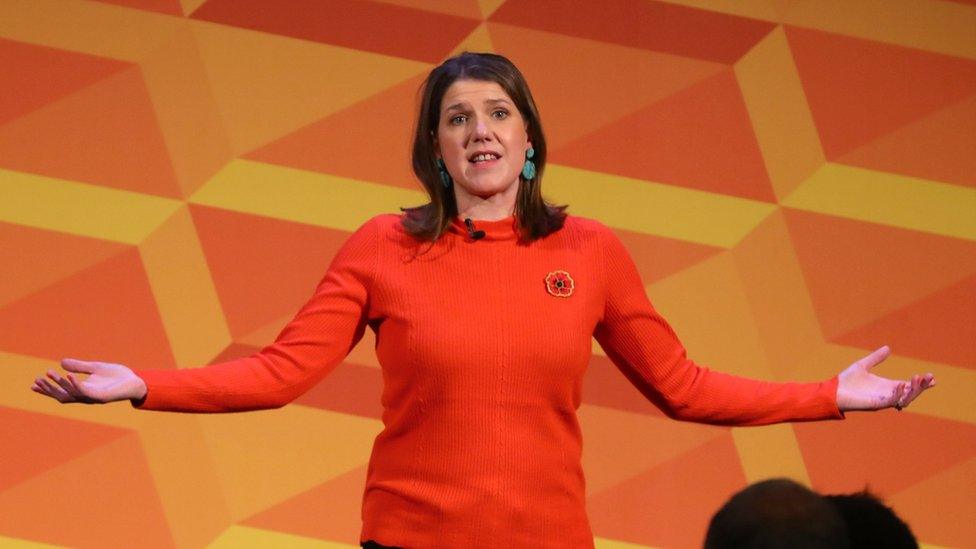
- Published1 November 2019
